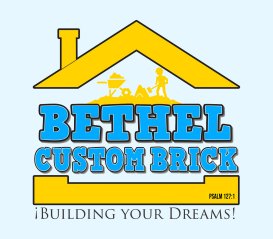A well-maintained chimney is crucial for the safety and efficiency of your fireplace or heating system. Over time, soot, debris, and creosote can build up inside your chimney, creating potential fire hazards. Regular chimney maintenance not only helps prevent dangerous chimney fires but also ensures your home remains safe and your heating system operates efficiently. Here are essential chimney maintenance tips to keep your home safe from fire hazards.
1. Schedule Regular Chimney Inspections
- Why It’s Important: Annual chimney inspections are vital for identifying hidden issues such as cracks, blockages, or creosote buildup that could lead to fire hazards.
- What to Look For: A certified chimney professional will check for structural damage, creosote accumulation, and the condition of the chimney cap and flue.
- When to Inspect: Ideally, schedule an inspection before the start of the heating season to ensure your chimney is ready for use.
2. Clean Your Chimney Regularly
- Why It’s Important: Creosote, a flammable byproduct of burning wood, can accumulate inside the flue and ignite if not removed.
- How Often: Chimneys should be cleaned at least once a year or after every 50 to 70 fires, depending on how frequently you use your fireplace.
- Professional Cleaning: While some homeowners attempt to clean their chimneys, a professional chimney sweep ensures thorough removal of creosote and debris.
3. Install a Chimney Cap
- Why It’s Important: A chimney cap prevents debris, animals, and rain from entering your chimney, reducing the risk of blockages and water damage.
- Additional Benefits: Caps with spark arrestors can also help prevent sparks from escaping the chimney and igniting nearby materials.
4. Check and Maintain the Chimney Liner
- Why It’s Important: A chimney liner protects the masonry from high heat and prevents toxic gases from entering your home. Damaged liners increase the risk of chimney fires and carbon monoxide leaks.
- What to Do: Have your liner inspected for cracks or gaps and replace it if necessary.
5. Burn Seasoned Firewood Only
- Why It’s Important: Burning unseasoned or green wood produces more smoke and creosote, increasing the risk of chimney fires.
- How to Choose Firewood: Use hardwoods like oak or maple that have been dried for at least six months. Properly seasoned wood is lighter, makes a hollow sound when tapped, and has visibly cracked ends.
6. Keep the Area Around the Chimney Clear
- Why It’s Important: Sparks and embers can escape from the fireplace and ignite nearby flammable materials, such as furniture, curtains, or rugs.
- Safety Precautions: Maintain a clear zone of at least three feet around the fireplace and avoid placing decorations on the mantle that could catch fire.
7. Inspect the Chimney Crown and Flashing
- Why It’s Important: The chimney crown and flashing protect your chimney from water damage. Cracks or gaps in these areas can allow moisture to seep in, leading to spalling bricks, mortar erosion, and creosote buildup.
- What to Do: Repair or replace damaged crowns and flashing to maintain a watertight seal.
8. Install Smoke and Carbon Monoxide Detectors
- Why It’s Important: Even with proper chimney maintenance, it’s essential to have functioning smoke and carbon monoxide detectors in your home as an added safety measure.
- Placement Tips: Install detectors on every level of your home, especially near bedrooms and the fireplace.
9. Avoid Overloading the Fireplace
- Why It’s Important: Overloading your fireplace with too much wood or using accelerants can produce excessive heat, leading to chimney damage or fires.
- What to Do: Follow manufacturer recommendations for your fireplace or stove and burn fires of a manageable size.
10. Watch for Warning Signs
What to Look For:
Smoke backing into your home
Unusual odors coming from the fireplace.
Loose bricks or mortar.
A black, sticky residue on the flue or chimney walls.
What to Do:
Address these issues promptly to prevent them from escalating into serious hazards.
Why Chimney Maintenance is Crucial for Fire Safety
Chimney fires can cause extensive damage to your home and put your family at risk. Proactive maintenance ensures your chimney remains safe to use, improves energy efficiency, and extends the life of your fireplace or heating system. By following these essential tips, you can minimize fire risks and enjoy a cozy, worry-free heating season.
Bethel Custom Brick – Your Trusted Chimney Maintenance Experts in the Detroit Metro Area
At Bethel Custom Brick, we specialize in professional chimney maintenance, including inspections, cleaning, and repairs, to help prevent fire hazards and keep your home safe. Serving the Detroit Metro area, our experienced team is dedicated to preserving the safety and functionality of your chimney with expert care and high-quality craftsmanship. Contact us today to schedule your chimney maintenance service and enjoy peace of mind all year round.


